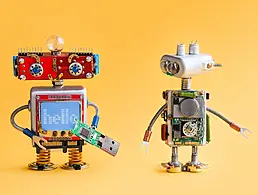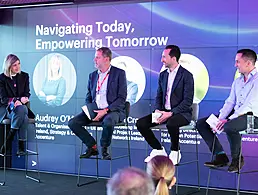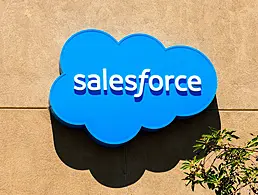In these uncertain times, many laud the software industry as one that won’t be disrupted by AI. Is this actually the case?
As AI begins to infiltrate the workforce, employees the world over are gripped with anxiety about how the labour landscape will be altered. The Pew Research Center released figures last year indicating that large majorities in many nations surveyed believe that the rise of automation will make it harder for ordinary people to find jobs. The majority also agreed that automation would have a negative net effect on the economy and wealth equality.
Amid this fear, many are hoping that reskilling will shield them from the post-AI fallout. People are being encouraged towards so-called ‘job-friendly’ degrees to fill vital skills shortages.
Computer science in particular is consistently praised as a future-proof discipline. In the age of the machine, people working in software will be the architects of our economy, so the hype claims, but is it true? Or is the perceived security in the software industry built on a fallacy?
The use of automation in software development has risen sharply in the last few years. Far from feeling secure, as outsiders may assume they do, as many as 29pc of software developers fear they will be replaced by an AI.
The issue with traditional coding, as Sergii Shanin writes for Hacker Noon, is that it’s incredibly complex. “Testing traditional code has to anticipate every possible situation, and this process grows exponentially,” Shanin explains. “This creates a real scalability issue with code; at a certain point, it just becomes too unwieldy to keep adding more and more lines of code to the original codebase.”
This is where machine learning excels – it doesn’t require a complex set of rules needing to be amended to fit into every possible situation; it develops its own intelligence. It’s seamless and far less cumbersome. The only drawback, if it could even be called that, is handing over the input-output process to a nebulous neural network black box. While not an operational fault, it is certainly unsettling on principle for leaders to not have an actual grasp of how a machine is getting from A to B.
The efficiency and cost reduction, however, will definitely tempt enterprises, particularly given that advances in technology have made machine learning more accessible than ever to organisations.
Many within the field are quick to quell anxieties about automation-related job loss. Yes, software professionals are just as likely to feel the impact of automation as most other professionals. Yet also, like most other professionals, commentators tend to agree that automated tools will aid, not replace, human workers.
Looking at it optimistically, AIs could be useful in trimming the fat from the development and engineering process. Tasks such as managing test data and reporting status all take away from the time that software professionals actually spend coding, testing and releasing. Deploying an AI could reduce the time spent on these activities and, if anything, free software professionals up more to do what they do best.
So, in many ways, the software industry isn’t particularly different to any other industry. It is no safer, nor is it in much more danger, than any other profession. It will be the business decisions made around AI that will have more of an impact on employees than the technology itself. Whether AI will be a harm or help will be up to your boss, not the AI.




